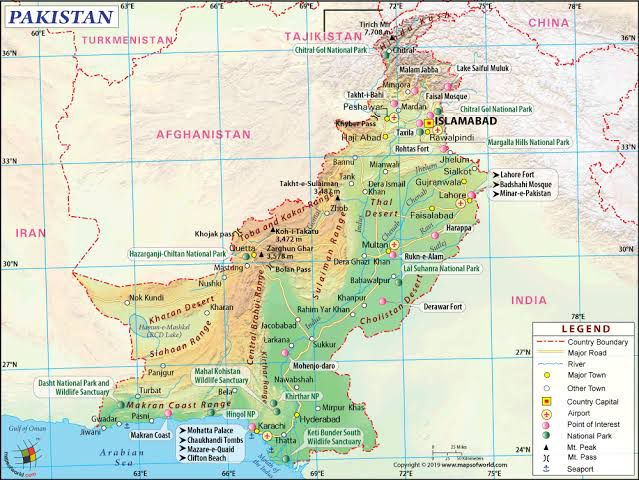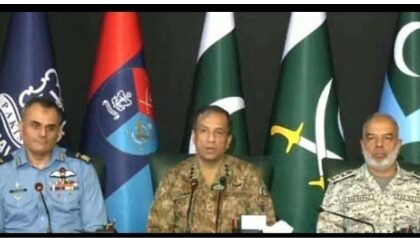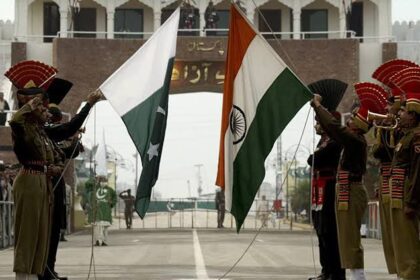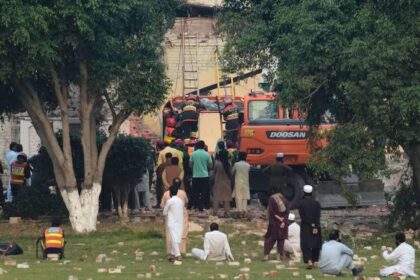This is the year Pakistan is going to turn 78 years old, which is nearly eight decades. During this long period, nation-states rise from the ashes and establish themselves as significant entities in the world. India was also liberated at the same time, yet its economic development has ranked it amongst the top five global economies. Similarly, China is one such nation that rejuvenated itself by becoming a steady economy and leaving its imperial past behind, and that too, within a few decades. Though Pakistan got its independent statehood two years prior to China’s liberation from imperialism, still the former failed to take any notes from its closest neighbor-cum-friend. The entire global landscape transformed during this time, but Pakistan’s misfortune, since the demise of Mr. Jinnah in 1948, has remained constant, dealing with a crisis one after another. Pakistan’s geographical location has put the country in deep crises not just in terms of the traditional security threats, but also non-traditional perils, also turning it into a security
Pakistan as a Security State
At the time of the partition of the Indian subcontinent into two states, Pakistan had already made a foe in the form of India, which has failed to accept the partition to this day. This provided the military establishment, one of the two already stable institutions in the nascent state, with the legitimate grounds to turn the country into a security or garrison state soon after the independence. India has always posed serious existential threats to Pakistan, and both countries have fought three wars for different reasons while getting on the brink of a nuclear clash multiple times. Other than that, India has also been engaged in guerilla warfare inside Pakistan by creating and backing separatist groups, as well as terrorist and religious extremist groups. Moreover, both countries have been involved in carrying out covert intelligence missions inside each other’s territory. India was also observed to use Iran as a means to infiltrate its spy Kulbhushan Jadhav into Pakistan’s Balochistan province, which borders the latter. Similarly, Pakistan is widely accused of creating a strategic depth in Afghanistan to utilize it against Indian aggression.
Furthermore, due to the same geopolitical vulnerability, Pakistan has been thrust into foreign conflicts. While India chose to remain non-aligned during the Cold War between the US and USSR during the 1980s, Pakistan became a part of the Western bloc, led by the United States. That alliance cost Pakistan its future peace and security, as the creation of jihadist groups, alongside the USA, against the Soviet Union in Afghanistan backfired on Pakistan. Therefore, Pakistan assumed the position of a security state, which has also undermined its political development, raising questions on its democratic culture and the constitutional transgression of the non-democratic institutions.
Non-traditional Security Risks
Barry Buzan, a renowned name in international relations and security studies, has presented the concept of security beyond its traditional military-oriented definition. He explains that non-traditional factors such as climate change, transnational terrorism, economic challenges, and social issues like ethnic conflicts pose the same level of threat to the security of a state as a potential military face-off with another state. Thus, Pakistan’s state of polycrisis arises from such elements, and a few of them are enlisted in this article.
- Terrorism
Terrorism is widely considered a non-traditional security threat, and Pakistan has already suffered enough consequences of transnational terror and extremism. It continues to be the target of these threats. As mentioned before, the country’s participation in the Cold War as a Western ally resulted in the growth and proliferation of the groups, including the Taliban and Al-Qaeda, with the latter being accused of the 9-11 attacks in 2001. Consequently, Pakistan once again became a flashpoint in the US-led War on Terror launched by the NATO states. Pakistan provided a base for the US against the jihadist groups inside Afghanistan as soon as the US invaded it. This further deteriorated the security situation in the country as these terrorist factions began targeting unarmed civilian populations across the country, particularly in the areas bordering Afghanistan. The porous Pak-Afghan border aided their smooth movement. Hence, during a course of about two decades, from 2001 till 2021, Pakistan incurred a loss of 83,000 lives and over PKR 35 trillion.
- Environmental Degradation & Climate Change
Climate change is a serious reality in today’s world, and ruling out its implications on Pakistan would be unfair. The country presently stands among the top five countries that are highly affected by climate change and vulnerable to destruction resulting from it. Not only that, Pakistan’s own environmental degradation is because of anthropogenic activities and unsustainable practices. The results are manifested in the form of disastrous floods wreaking havoc in the already underdeveloped regions of Pakistan. The torrential rains of 2022 in major parts of the country, including Balochistan, are a case study to study the impact of climate change on a developing country.
- Ethnic Conflicts
The people of Pakistan have also been dealing with a constant identity crisis. This country is overpowered by provincial nationalism, and ethnic identity is prioritized over national unity, mainly because of the history of the regions, which is thousands of years older than Pakistan. This cohesion is further undermined by the identity politics and nationalist agendas of the self-serving politicians, along with foreign-backed separatist entities, which fuels the fire of conflict among various ethnic groups. Balochistan and Sindh are the most susceptible to ethnic riots. The failure of the rulers to unite the nation has led to this crisis, which poses a serious threat to national integration and existence.
In a nutshell, Pakistan has a long path to tread before achieving social, economic, and political stability. by tackling the non-traditional security risks, as they are more perilous to state sovereignty.












